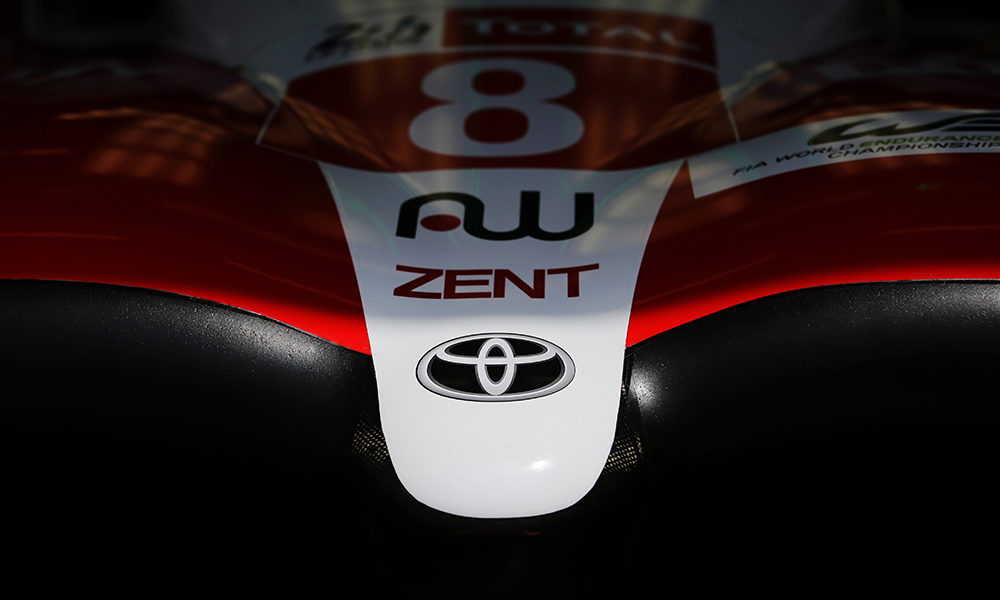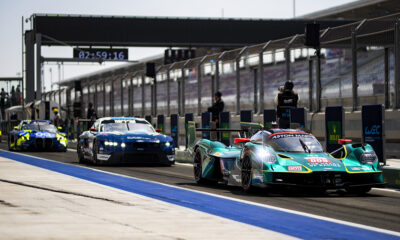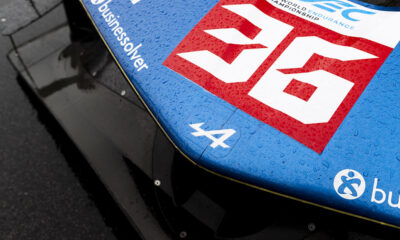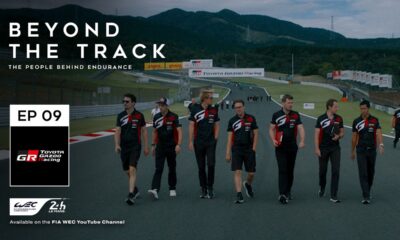
Photo: Toyota
Toyota and Aston Martin have said that the pace is increasing in the formalization of the FIA and ACO’s ‘Hypercar’ regulations and insist that interest levels remain high in recent working group meetings.
Announced at Le Mans in June, work has continued on the 2020-21 regulations, which calls for GTP-styled prototypes with low-powered hybrid systems at a drastically reduced budget of €25-30 million ($30-35 million) per season.
A November deadline has been set to finalize the draft set of regulations to be presented to the FIA World Motor Sport Council for approval in early December.
“We’re getting organized,” Toyota Gazoo Racing technical director Pascal Vasselon said.
“We have challenging deadlines to provide a draft by the end of the year. We are getting organized to achieve that. We had a meeting on Thursday. The pace is increasing. We will have the rules.”
Aston Martin has also been “keen participants” in the process, according to AMR president David King.
“We’re enthusiastic and committed to do the right thing for the sport,” he told Sportscar365.
“If we collectively come out with a set of regulations that everyone is happy with, the next step is to make a decision on whether we wanted to spend the money and who we partner with and everything else.”
King admitted the tight timeframe could, however, provide the biggest challenge to manufacturers wanting to be ready for the 2020-21 FIA World Endurance Championship season.
“My main concern is that it would all need to happen fairly quickly given that they want cars on the grid in September 2020,” he said.
“That’s almost stretching the boundaries of what’s achievable, assuming you don’t already have a budget approved and a team ready to start designing the race car.”
While Toyota and Aston Martin have been two of the regular participants in the meetings, King indicated it’s tough to gauge the exact level of interest from others at this stage.
“[Other manufacturers] are hot and cold about it and it’s a game of poker really, as to who’s coming in and who’s not,” King said.
Vasselon added: “Some are coming, some are going. It’s difficult at the moment.
“Every time, we have a big table and a lot of people around the table to discuss. It looks OK. The interest in there.
“Fundamentally, these new regulations are attractive. I think it may take time for other manufacturers to understand it.”
Prospects of a shared platform with IMSA appear to be in flux, with the ACO reportedly being unsuccessful in courting Ford for an early commitment to the 2020-21 WEC season.
Ford has instead accelerated plans for a DPi program, indicating that it would unlikely enter the top class of the WEC unless a common set of regulations is reached with both sanctioning bodies.
Ferrari, meanwhile, is understood to have been involved in recent Hypercar developments.
Toyota ‘Commitment Update’ Set for Early 2019
Vasselon said he expects to have an update on Toyota’s commitment to the WEC by early next year.
The Japanese manufacturer is currently only confirmed through the end of the current 2018-19 ‘Super Season’ although is believed to likely continue into the following season with its existing TS050 Hybrids.
“I think we should be able to update our commitment in the beginning of 2019,” Vasselon said. “Usually we don’t commit for many seasons [at a time]. We commit for the next season. It’s the principle.”
He indicated that a 2019-20 program wouldn’t necessarily ensure that Toyota would be confirmed for the Hypercar regs the following season.
“It depends,” Vasselon said. “We have the cars available so we could do the next season and stop after. Anything is possible.”
Aston Focused on GT Despite DTM, Hypercar Talks
King, meanwhile, wouldn’t say whether Aston Martin could undertake two new factory-based programs, amid increasing speculation the British manufacturer is preparing for an entry into DTM in 2020.
While declining to comment about DTM, King reiterated its current focus remains on GT racing, despite the ongoing Hypercar talks.
“Our main commitment remains to GT racing, that’s the thing we’ve said we’re going to do for the next four seasons, at least,” he said.
“I am proud that Ferrari, Aston and Porsche are the only ever-presents in GT in WEC, and we want to carry on like that.
“Everything else is just opportunity that has to be evaluated, on what it gives to our brand, on how it helps our cars and promotes our products, and we’ll see in the next few months where we’ll go.”
























